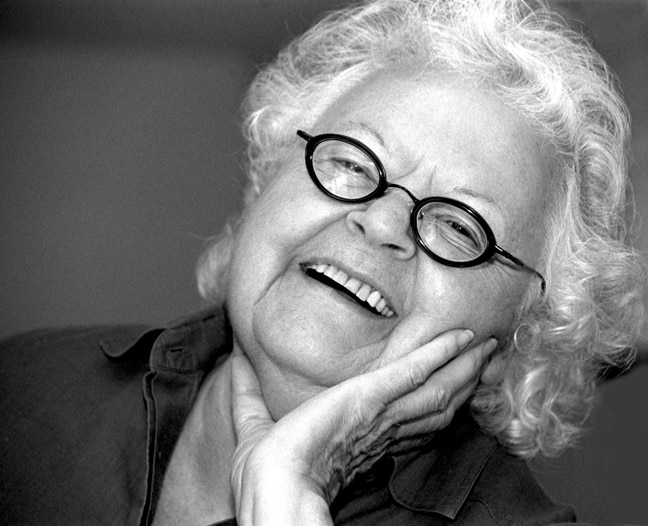UC Press is proud to have published many books by women whose lives and convictions made the world a better place—Grace Lee Boggs and Jody Williams, among others. Ronnie Gilbert, who died this past week, stood tall in that company as a peerless artist and activist.

If anybody’s life story deserved to be written it was Ronnie Gilbert’s. She was a singer and an actress, a worker and a mother, a therapist, a writer, and an activist, working with groups like Women in Black to fight against injustice. And who better than Ronnie herself to tell the tale? Anyone who has heard her rich contralto or seen her on stage knows that she had a gift for conveying a wealth of meaning in just a few words.

Ronnie was strong-willed and outspoken and funny, but what I remember most about working with her to shape her memoir was how humble she was about her life and career. She didn’t make outsized claims for what she had accomplished as an activist: she kept coming back to simply having done what she thought was right. She wasn’t interested in creating a Hollywood narrative about her trajectory as an artist, despite the great influence she had on so many others. She knew better than anyone the dedication and hard work it took, and she acknowledged being fortunate (this from someone who had been blacklisted, her career nearly ended), in the right places at the right times, willing to offer her music where it would help a cause, compel people to recognize injustice, and act.
I am a music editor, and it was the music Ronnie made that drew me to her memoir. Ronnie was a bold woman with a voice to match, one that could ride over the voices of the other Weavers any time she needed it to. Listening to their live album, The Weavers at Carnegie Hall, it is easy to hear why their sound influenced so many. Justly famous numbers like “Goodnight Irene,” are simply beautiful, showcasing their distinctive harmonic arrangements. Their fire and raw conviction are in every note of “Sixteen Tons,” their sass and humor in “Rock Island Line.” Their virtuosic arrangement of “When the Saints Go Marching In” gives the spotlight to each voice in turn, using the utopian verses that reach their peak with Ronnie’s passionate evocation of ”when the new world is revealed.” In that verse I can hear her calling out confidently for the justice they all believed in and worked so fervently for.
Ronnie’s voice on its own was as moving as anything the Weavers ever sang together. Her rendition of “I Know Where I’m Going” shows how she could gentle her clarion tones, though the simple confidence of the song leaves no doubt of her underlying strength. The combination of strength and sweetness endures decades later in her rendition of “The Water is Wide,” from 1984. A profoundly sad song is not a fair way to recall Ronnie’s rich and rewarding life. But all of us at UC Press who were privileged to work with her share the sadness of her family and friends at losing such a great lady.

